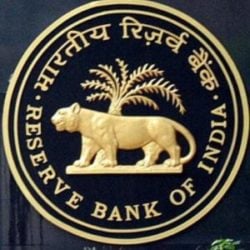RBI liberalises ECB norms by relaxing end-use restrictions
Reserve Bank of India (RBI) has relaxed External Commercial Borrowing (ECB) norms for corporates, non-banking lenders by relaxing end-use restrictions with regard to working capital, general corporate purpose and repayment of rupee loans. This decision was taken after receiving feedback from stakeholders for easing liquidity in the domestic market.
Recent changes by RBI
- End-use stipulations for ECBs for both corporates as well as liquidity starved non-banking lenders has been liberalised
- Liberalisation will be applicable to ECBs taken for general corporate purpose loans, working capital or repayment of rupee loans.
- It allows eligible borrowers to raise ECBs from recognised lenders, except foreign branches and overseas subsidiaries of Indian banks, with minimum average maturity period of ten years for working capital purposes and general corporate purposes.
- It also allows ECBs to raise with minimum average maturity period of 7 years for repayment of rupee loans availed domestically for capital expenditure.
- It also permits borrowing for on-lending by NBFCs for above maturity and end-uses. It also permits borrowings for on-lending by NBFCs for repayment of rupee loans.
- It also allows corporate borrowers to avail ECBs for repaying rupee loans taken for Capital expenditures if they are into infrastructure building/ manufacturing and classified as Special Mention Account (SMA-2) or Non-Performing Asset (NPA), under any one-time settlement arrangement with lenders.
About External Commercial Borrowing (ECB)
It is instrument used in India to facilitate Indian companies to raise money outside the country in foreign currency. It may be commercial loans which can be in form of bank loans, bonds, securitized instruments, buyers’ and supplier’s credit availed from non-resident lenders with minimum average maturity of 3 years. In India, ECBs availed of by residents are governed by Foreign Exchange Management Act (FEMA), 1999 along with Foreign Exchange Management (Borrowing or Lending in Foreign Exchange) Regulations, 2000, as amended from time to time.
Special Note: It should be noted that ECB is not Foreign Direct Investment (FDI). In case of FDI, foreign money is only used to finance equity capital. But in case of ECB,foreign money is used to finance any kind of funding other than equity.
Month: Current Affairs - August, 2019


